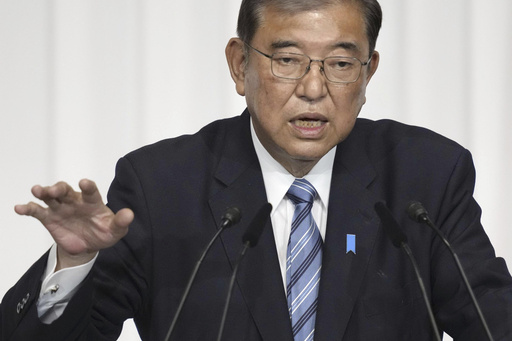
Tokyo — On Saturday, Japan’s Prime Minister Shigeru Ishiba reiterated his commitment to enhancing the nation’s military capacity and strengthening its alliance with the United States under the incoming administration of President-elect Donald Trump.
During his speech at an annual military review at Camp Asaka, situated in the outskirts of Tokyo, Ishiba conveyed that the security landscape surrounding Japan has notably deteriorated, citing rising tensions with China, Russia, and North Korea. He emphasized the need to bolster Japan’s military strength to address these escalating threats.
He highlighted that incursions into Japanese airspace by Chinese and Russian military aircraft earlier in the year were not only violations of Japan’s sovereignty but posed a direct threat to national safety, which he termed as utterly unacceptable. Ishiba expressed concerns regarding increasing military activities by China in the waters near Japan and the ongoing missile tests conducted by North Korea.
“Confronted with an extremely challenging and intricate security setting, I am committed to enhancing Japan’s diplomatic and security efforts,” Ishiba stated, addressing a crowd of troops at the ceremony.
He noted that the alliance between Japan and the U.S. is pivotal to achieving security objectives, vowing to strengthen this relationship while collaborating closely with Trump, following a brief phone call the previous week.
Ishiba assumed office on October 1, succeeding the less popular Fumio Kishida. However, his party has encountered significant setbacks in a recent parliamentary election, which may hinder efforts to implement their planned policies and budgetary measures in the near future.
The Prime Minister also affirmed his commitment to the ongoing military enhancement strategy established in 2022, which hints at developing a counter-strike capability through long-range cruise missiles, diverging from Japan’s traditional stance of self-defense. He indicated a focus on improving the command structure to facilitate better integration of operations between Japanese and U.S. forces.
Historically, Japan has prioritized economic recovery following its defeat in World War II, adhering to a constitution that renounces war; however, the country has gradually augmented its defense capabilities over recent years.
